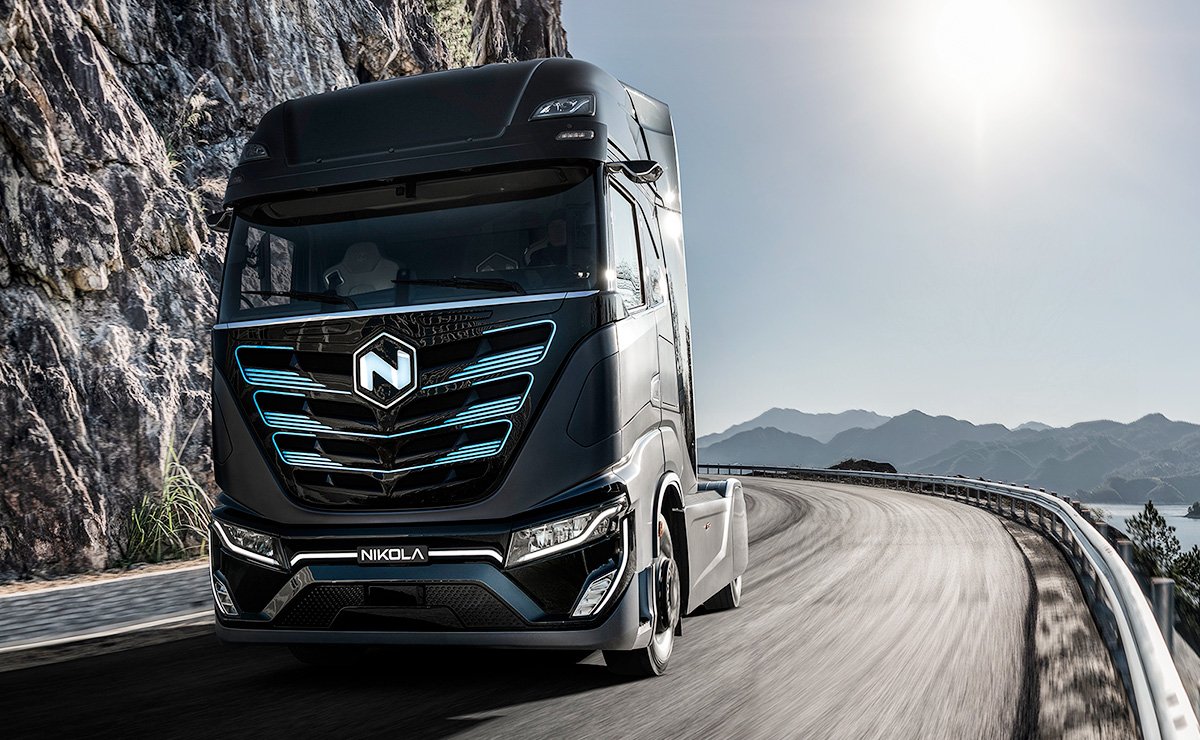<!–*/ */ /*–>*/
| Nikola’s energy unit to install hydrogen fueling stations at service centers |

Remember Nikola Corp.? Yes — THAT Nikola Corp., the electric truck startup based in Phoenix that was riddled with controversy last fall.
The company seems to be turning a new leaf by exploring opportunities in the hydrogen space — this time, in fueling.
Nikola’s energy division, Nikola Energy, and TravelCenters of America Inc., known as TA-Petro, are installing hydrogen fueling stations for heavy-duty trucks at two TA-Petro sites in Southern California.
The two undisclosed sites will be operational by early 2023, the companies said last week.
The stations “will provide for an open fueling network available to any truck customer and will follow a common industry standard for heavy-duty fueling protocols,” Nikola and TA-Petro said in a statement.
This means the stations will not operate like some proprietary electric vehicle chargers and will instead be compatible across hydrogen-powered truck manufacturers.
The partnership marks TA-Petro’s first foray into the future of Class 7 and 8 trucks through its new eTA business unit, focusing on alternative fuel offerings.
“Our collaboration in Southern California will form a basis for building an expanded network of hydrogen fueling stations for Nikola vehicle customers and for industry use overall,” Pablo Koziner, Nikola president of energy and commercial, said in the statement.
The stations will come ahead of production on Nikola’s Tre, a 500-mile-range fuel-cell truck, which is expected to begin in the second half of 2023. Prototype builds of the truck are scheduled to begin in Arizona and Germany in the second quarter of this year.
– Alexa St. John
What you need to know
GM launches Ultium Charge 360 to simplify EV charging General Motors has partnered with seven major charging providers to help customers locate and pay for electric vehicle charging through its vehicle mobile apps, the automaker said Wednesday. The agreements are part of Ultium Charge 360, GM’s new charging strategy that integrates charging networks, GM brands’ apps and other products and services to simplify the charging experience for EV owners.
Ford spending $185M to build EV battery lab Ford Motor Co. said Tuesday it’s investing $185 million in a research lab for electric vehicle battery development as it moves closer to manufacturing its own cells. Called Ford Ion Park, the 200,000-square-foot facility in southeast Michigan will have 150 employees and be capable of designing and manufacturing battery electrodes, cells and arrays at the pilot level. It’s planned to open by the end of 2022.
Alliance releases driver-monitoring safety principles The Alliance for Automotive Innovation on Tuesday unveiled several safety principles related to driver monitoring in vehicles with driver-assist systems, part of a public statement by major U.S. automakers to ensure the technologies are safely and effectively used. The principles focus on effective ways to determine appropriate driver engagement while educating the public on the benefits and limitations of driver-assist features. The alliance is advising that driver-assist system information “reasonably reflects” the functionality without implying greater capability, especially by product name or in promotional materials. It also supports providing driver monitoring as a standard feature on vehicles equipped with driver-assist systems.
Roundup
The latest fatal crash involving a Tesla vehicle turns the spotlight on drivers eager to take risks with Autopilot and the competence of safeguards that should be in place to stop them.
Staff Reporter Pete Bigelow discusses the Tesla crash on the Daily Drive podcast. Meanwhile, details of the accident are revealed in a Texas fire marshal report.
Honda will phase out internal combustion engines in all new automobiles by 2040 under an aggressive electrification plan.
Waymo ranked top in latest Guidehouse leaderboard on automated driving systems.
Toyota’s acquisition of Lyft’s self-driving unit bolsters the automaker’s automation ambitions.
Global EV sales accelerating, but government help needed, energy agency says.
UAW President Rory Gamble says the union is in talks with GM about representing workers at joint venture battery plants, Reuters reports.
Luminar looks skyward for next lidar partnership.
Three U.S. senators want driver-monitoring systems mandated.
Recycling could help fill battery demand.
The push to widen the adoption of electric vehicles in the U.S. is driving the conversion of utility poles and streetlights into EV charging destinations.
Brain food
Governments face a problem maintaining fuel-tax revenue in the face of looming EV mandates, writes Automotive News Canada Editor-in-Chief Jeff Melnychuk.
Last mile
Troubled Los Angeles-based electric vehicle startup Faraday Future has selected San Jose-based sensor company Velodyne Lidar Inc. as the solid-state lidar supplier for its flagship FF 91 electric vehicle. The luxury vehicle is expected to launch within 12 months of the closing of Faraday Future’s merger with special purpose acquisition company Property Solutions Acquisition Corp.